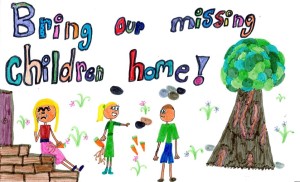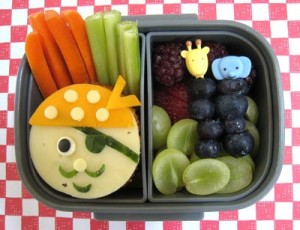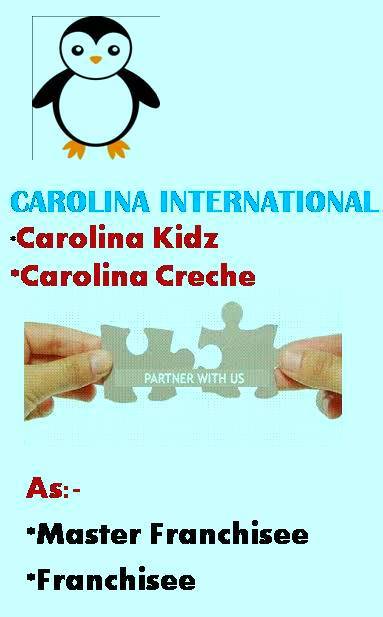Children are not the people of tomorrow, but are people of today. They have a right to be taken seriously, and to be treated with tenderness and respect. They should be allowed to grow into whoever they were meant to be. ‘The unknown person’ inside each of them is our hope …
Carolina Kidz has firm belief that no school can alone develop a child in a true sense .Parents are the most effective and essential partners for upbringing children along with the School.In true sense we encourage and arrange a regular meetings with the Parents .We organize MOTHERS meet four times in a year.These meetings are full of get to gether discussions and dining, followed by Dance & Music.This way Mothers and Teachers are in a happy position to compliment each other for the development of the child in in a real sense and manner.We have been able to solve within no time, many problems of the chilren such as, manners and ettiquettes,eating habits, group sharing and so on so forth….
To support Parents We are providing Parental Tips . We are more than confident that it will quench your anxiety if you are planning to put your children first time in a Play School. You will find it useful and can apply smoothly and effectively.We are committed to guide you on the following aspects:
1.How to Choose a Pre- School for your Child
2.How to win emotions when leaving you child for the first time in a Pre-School.
3.What to do when your Child cries and refuses to attend School.
4.How to Influence Child’s healthy food habits.
5.How to convert a shy & introvert Child into a smart Child
6.How to develop a stress free learning habits of the Child
7.How to provide an effective daily entertainment module for a Child.
8.How to engage a Child on Weekdays
CAROLINA PARENTAL TIPS FOR EVERY MOTHERS & PARENTS
 or the future.
or the future.
WHICH FIRST SCHOOL YOU SHOULD CHOOSE FOR YOUR CHILD?
There is a world wide anxiety of parents when their children reach an age of 2 years and more. Parents start showing their anxiety to their friends and family. In fact they need to decide a proper pre-school for their child. In fact anxiety is more because it is the question of their child’s first school in her/his life, therefore a big question mark. Often they are attracted towards a big name, big building and a large number of students. These attributes may be good at a later stage but may not be useful for the first time school goers. Remember initially your child is not going to avail all these three Bigs. Then what should you look for your child who is going to attend school for the first time.
Look for the following attributes on priority basis.
- AMBIENCE: Play- School Area must be neatly carved out and separated from the large chunk of people, students or building. Here your child will not feel lost .He can conceive the entire scenario quickly and feel comfortable.
- STAFF: The Principal , Teachers and care takers should be very homely with friendly disposition and pleasing personality.
- CLASS ROOMS: The class room and other parts of the building must be colorful and child friendly. There must be ample space for movement in the class room
- OPEN SPACE:”Be sure there is some open space for some out door activities and playing area .This will remove everyday monotony from the mind of your child.
- REST ROOM :This is most important for your child that he / she must be provided extra hygienic, clean and comfortable toilets and rest rooms.
- CURRICULUM: Check the curriculum which must contain oral as well as few essential writing practices. Oral must consist of Audio visuals, brain-games, Rhymes, poems Story telling, General awareness ,manners & etiquettes etc. In the writing practices ,which must be taken after a minimum of 6 months of schooling ,should be limited to lines, shapes and drawings .
REST ASSURED THAT YOUR CHILD IS ABLE TO LEARN THESE IN PRE-SCHOOL & BEFORE ENTERING KINDERGARTEN
Top 15 Things Every Child Should Know Before Entering Kindergarten
- Be able to state first and last name when asked.
- Be able to write first name with first letter upper case and remaining letters lower case.
- Use appropriate three-finger grasp when using writing instruments (pencils, crayons and scissors)
- Count to at least thirty and tells what number comes before or after a given number to 20.
- Know all the letters in their first name.
- Identify basic geometric shapes (triangle, circle, square, rectangle, oval, star, rhombus (diamond) and heart)
- Know basic colors (red, blue, green, yellow, orange, purple, black, white, brown, pink)
- Identify numerals 1-10 in random order.
- Make most letter/sound matches.
- Identify most upper and lower case letters.
- Use finger to accurately touch count items to ten.
- Knows concepts of print (front and back of book, which page comes first, track words left to right).
- Be able to rhyme words.
- Retells simple stories in sequence.
- When given a word (“man”) and a new beginning sound (/f/), creates the familiar word (“fan”)
Socially Your child should be able to…
- Adjust own clothing before and after using restroom.
- Use restroom independently including washing hands without reminder.
- Take off and put on outer clothing
- Sit for a story for 5-10 minutes
- Clean up after themselves
- Shares materials and toys with other children.
- Attend kindergarten with a positive attitude
- Be confident and ready to separate from parent.
- Be able to listen and follow 2-3 step directions.
- Be able to solve problems without aggression.
Help Prepare Your Child by…
- Going to interesting places such as the beach, park, zoo, airport, farm or lake. (Example: Use car rides to play I Spy, this encourages children to identify shapes, colors and helps develop their vocabulary in fun ways.)
- Encourage your children to observe and talk about their experiences, as conversations with adults who care enrich a child’s vocabulary and understanding of world.
- Make eye contact with your child while listening to them speak, showing them that you value what they say.
- Expose your child to many kinds of literature by reading to them daily.
- Praise and encourage your child’s efforts and curiosity, knowing that from mistakes come learning and confidence. Criticism can discourage children from trying new things and lower self confidence.
**************************************************************************
!!!! PREPARING FOR THE FIRST DAY OF SCHOOL
The Common Worries of a Child going for the firat time to a schools are :
- “What if my teacher is mean?”
- “What if the kids don’t like me?”
- “What if I can’t do the work?”
- “What if I cry and want to go home?”
- “What if Mommy or Daddy forgets to pick me up?”
***********************************************************
Starting school can be a difficult time for children. Every child is hesitant to go somewhere new and see people she’s never met before. Here are some helpful ways to prepare your child for her first day of school: ( Based on Sources: American Academy of Pediatrics;)
1. Let your child know what his schedule will be like. Tell him what time school begins and ends each day.
2. Ask your child about her feelings — both the excitement and the concerns — about starting school.
3. Visit the school with your child to see his new classroom and meet his new teacher before school officially starts.
4. Point out the positive aspects of starting school. It will be fun and she can make new friends.
5. Let your child know that all kids are nervous about the first day of school.
6. Leave a note in your child’s lunchbox that will remind him you’re thinking of him while he’s at school.
7. Reassure your child that if any problems arise at school, you will be there to help resolve them.
8. Try to have your child meet a classmate before the first day of school so she will already have a friend when school starts.
9. Arrange for your child to walk to school or ride together on the bus with another kid in the neighborhood.
10. Find out about after-school activities that your child can join. Will there be a back-to-school party? Can she join a sports team?
**************************************************************************
!!!!BEHAVIORAL INTERVENTION OF YOUR CHILD !!!!
As a Parents you can gradually mould your child’s behaviour in a positive direction.This will boos up his/her moraleand infuse confidence .The following tips are being given for your reference and consideration.
- Children do as you do. Your child watches you to get clues on how to behave in the world. You’re her role model, so use your own behaviour to guide her. What you do is often much more important than what you say. If you want your child to say ‘please’, say it yourself. If you don’t want your child to raise her voice, speak quietly and gently yourself.
- Show your child how you feel. Tell him honestly how his behaviour affects you. This will help him see his her own feelings in yours, like a mirror. This is called empathy. By the age of three, children can show real empathy. So you might say, ‘I’m getting upset because there is so much noise I can’t talk on the phone’. When you start the sentence with ‘I’, it gives your child the chance to see things from your perspective.
- Catch her being ‘good’. This simply means that when your child is behaving in a way you like, you can give her some positive feedback. For example, ‘Wow, you are playing so nicely. I really like the way you are keeping all the blocks on the table’. This works better than waiting for the blocks to come crashing to the floor before you take notice and bark, ‘Hey, stop that’. This positive feedback is sometimes called ‘descriptive praise’. Try to say six positive comments (praise and encouragement) for every negative comment (criticisms and reprimands). The 6-1 ratio keeps things in balance. Remember that if children have a choice only between no attention or negative attention, they will seek out negative attention.
- Get down to your child’s level. Kneeling or squatting down next to children is a very powerful tool for communicating positively with them. Getting close allows you to tune in to what they might be feeling or thinking. It also helps them focus on what you are saying or asking for. If you are close to your child and have his attention, there is no need to make him look at you.
- ‘I hear you.’ Active listening is another tool for helping young children cope with their emotions. They tend to get frustrated a lot, especially if they can’t express themselves well enough verbally. When you repeat back to them what you think they might be feeling, it helps to relieve some of their tension. It also makes them feel respected and comforted. It can diffuse many potential temper tantrums.
- Keep promises. Stick to agreements. When you follow through on your promises, good or bad, your child learns to trust and respect you. So when you promise to go for a walk after she picks up her toys, make sure you have your walking shoes handy. When you say you will leave the library if she doesn’t stop running around, be prepared to leave straight away. No need to make a fuss about it – the more matter of fact, the better. This helps your child feel more secure, because it creates a consistent and predictable environment.
- Reduce temptation. Your glasses look like so much fun to play with – it’s hard for children to remember not to touch. Reduce the chance for innocent but costly exploration by keeping that stuff out of sight.
- Choose your battles . Before you get involved in anything your child is doing – especially to say ‘no’ or ‘stop’ – ask yourself if it really matters. By keeping instructions, requests and negative feedback to a minimum, you create less opportunity for conflict and bad feelings. Rules are important, but use them only when it’s really important.
- Whining: be strong. Kids don’t want to be annoying. By giving in when they’re whinging for something, we train them to do it more – even if we don’t mean to. ‘No’ means ‘no’, not maybe, so don’t say it unless you mean it. If you say ‘no’ and then give in, children will be whine even more the next time, hoping to get lucky again.
- Keep it simple and positive . If you can give clear instructions in simple terms, your child will know what is expected of him. (‘Please hold my hand when we cross the road.’) Stating things in a positive way gets their heads thinking in the right direction. For example, ‘Please shut the gate’ is better than ‘Don’t leave the gate open’.
- Responsibility and consequences . As children get older, you can give them more responsibility for their own behaviour. You can also give them the chance to experience the natural consequences of that behaviour. You don’t have to be the bad guy all the time. For example, if your child forgot to put her lunch box in her bag, she will go hungry at lunch time. It is her hunger and her consequence. It won’t hurt her to go hungry just that one time. Sometimes, with the best intentions, we do so much for our children that we don’t allow them to learn for themselves. At other times you need to provide consequences for unacceptable or dangerous behaviour. For these times, it is best to ensure that you have explained the consequences and that your children have agreed to them in advance.
- Say it once and move on. It is surprising how much your child is listening even though he might not have the social maturity to tell you. Nagging and criticising is boring for you and doesn’t work. Your child will just end up tuning you out and wonder why you get more upset. If you want to give him one last chance to cooperate, remind him of the consequences for not cooperating. Then start counting to three.
- Make your child feel important. Children love it when they can contribute to the family. Start introducing some simple chores or things that she can do to play her own important part in helping the household. This will make her feel important and she’ll take pride in helping out. If you can give your child lots of practice doing a chore, she will get better at it and will keep trying harder. Safe chores help children feel responsible, build their self-esteem and help you out too.
- Prepare for challenging situations. There are times when looking after your child and doing things you need to do will be tricky. If you think about these challenging situations in advance, you can plan around your child’s needs. Give him a five-minute warning before you need him to change activities. Talk to him about why you need his cooperation. Then he is prepared for what you expect.
- Maintain a sense of humour. Another way of diffusing tension and possible conflict is to use humour and fun. You can pretend to become the menacing tickle monster or make animal noises. But humour at your child’s expense won’t help. Young children are easily hurt by parental ‘teasing’. Humour that has you both laughing is great.**********************************************************************
!!!! DOS & DONTS !!!!
Here are some simple things you can do to help your child’s development at this age:
- Give your child lots of playtime: messy play – in sand or mud or with paints – play with puppets or toys and outdoor play – with plenty of running, tumbling and rolling – are all great ways for preschoolers to express feelings, particularly if they’re upset or angry.
- Make time for creative and artistic play: this might be craft, painting and drawing, or dress-up games. Musical play is another idea. Your child might like to dance, jump around and ‘act out’ to music or make music with simple instruments. These activities help to develop children’s senses and also let them express feelings.
- Read with your preschooler: you can encourage your child’s talking, thinking and imagination by reading together, telling stories, singing songs and reciting nursery rhymes.
- Do some cooking with your child: helping to prepare a meal is a great way to get your preschooler interested in good food. Give her simple things to do, like tossing a salad or putting together meals like sandwiches or tacos. She’ll also learn new words – for example, ‘peel’, ‘egg beater’ and ‘grater’ – maths concepts – for example, ‘half’, ‘1 teaspoon’, ‘30 minutes’ – how to do things step by step, and how to be patient as she waits for that cake to rise!
- Play games with your child that involve learning to share and take turns. When you play, say things like, ‘Now it’s my turn to build the tower, then it’s your turn’, or ‘You share the red blocks with me, and I’ll share the green blocks with you’. Sharing is still hard for children at this age, so give your child lots of praise when you see him trying to share.
********************************************************************
BEING A PARENT
Every day you and your preschooler will learn a little more about each other. As your preschooler grows and develops, you’ll learn more about what she needs and how you can meet these needs.
In fact, as a parent, you’re always learning. Every parent makes mistakes and learns through experience. It’s OK to feel confident about what you know. And it’s also OK to admit you don’t know and ask questions – often the ‘dumb’ questions are the best kind!
Your own physical and mental health is an important part of being a parent. But with all the focus on looking after a child or baby, lots of parents forget or run out of time to look after themselves. Looking after yourself will help you with the understanding, patience, imagination and energy you need to be a parent
************************************************************************
Do You Owe Your Child Self-Esteem?
Parents may misunderstand the meaning of self-esteem and feel that this is just one more thing they are required to give their child along with regular meals and a warm winter jacket. They guard against anything that may undercut self-esteem – to the point where it becomes ridiculous. (“Oh, Billy, you don’t really sing flat. You’re just tonally challenged.”) They measure self-esteem daily, as one might take a temperature. (“Julie’s self-esteem is low today. Her big brother beat her at checkers last night.”) Every infant whose needs are met has self-esteem built in. Like an arborist caring for a tree, in order to raise a confident child, your job is to nurture what’s there, do what you can to structure your child’s environment so that she grows strong and straight and avoid whittling away at the tender branches. You can’t build your child’s self- esteem compliment by compliment, activity by activity. Parents are already overloaded with guilt because they may not be doing enough to foster their child’s self-worth. You don’t need a degree in psychology to raise a confident child. Much of parenting is easy and fun. Hold your baby a lot, respond sensitively to her needs, enjoy your baby. Then sit back and enjoy the person whose self-esteem is developing naturally.
**************************************************************************
!!!! EMOTIONAL SECURITY & SUPPORT !!!!
Why is it important to care about a child’s emotional security? Children’s social emotional state is connected to other important aspects of their lives, such as their ability to explore and learn. It also involves their ability to make friends, play and face difficult situation later in life.
What you can do:
Children who experience a pattern of responsive and consistent care from their parents and caregivers are more likely to develop a positive sense of self, of others and the world around them. They are then more likely to have self-confidence, trust others and explore and learn new situations. On the other hand, children who experience unresponsive treatment from parents and caregivers are likely to have behavior problems, act out and have feelings of mistrust and low self-esteem.
Here are some ways to help your child develop a positive feeling of emotional security.
- Be Responsive
Contrary to popular belief you can’t spoil a child by being responsive. It’s how you respond that makes a difference. Your baby is sending you signals and cues all the time. Take time to observe your baby and find out what she wants. Let your child know you see her cues for help and attention. Just by giving her attention that you know she needs something is a great first step. Next it’s important to respond appropriately to what she needs. Is she pointing to a toy to play with you? Is she hungry? Does she need to sleep? Does she need a hug?
Remember that no good comes from leaving a baby or young child “cry it out”. All young children have difficulty controlling their emotions your baby needs your help to calm down. Not responding to a cry sends a signal to your baby that she can’t count on the adults and caregivers around her. On the other hand when children feel understood and responded to they learn to develop trusting relationships and good self-esteem.
- Support your child’s development
Almost everything young children experience is new for them. That’s important to keep in mind when your little one is struggling to put on his jacket or spills while pouring his juice. These and many more are skills your little one needs to learn and learning never happens without mistakes. What’s important is that these mistakes are met with encouragement, positivity and a solution. Not criticism and punishment.
- Try to find a balance between giving your child independence and support. Your child needs to know you will be there when she needs help. Give him the space needed to explore new activities and places while letting him know you are there to support if things get too tough.
- Try not to be over intrusive with your child’s initiatives. Avoid taking over your child’s activity and being over involved. This will just push your child away from exploring new things.
- Letting your child do things on his own and learn through trial an error can help him feel more independent, self-reliant and confident in approaching new or tough situations.
- Communicate with your child
Communication is extremely important even with young children who can’t form full sentences of their own yet. While your child might not be able to fully express himself verbally, he can understand you very well. Let your child know what to expect to increase his feeling of security by communicating with your child and explaining things. Tell him why you will leave him at daycare? Mommy has to go to work. Where will you go? Mommy will go to work. When will you return? I’ll pick you up after snack time. Make sure to put your words in terms your child can understand and to stick to what you say! With repetition your child will develop a sense of trust and confidence.
- Mistakes are opportunities to learn
Remember that your child is experiencing things for the first time and has not yet mastered basic skills. How you respond is important to how your child views himself and his abilities. Mastering a skill can only come by practice. Give your child opportunities to do things on his own and be positive when correcting your child’s misbehavior or when offering your child help. This helps give your child a sense of confidence, positive self-esteem and encourages him to try again. The same applies when resolving conflict. Give your child a chance to explain, propose a solution and try it out. If it doesn’t work out then discuss why he thinks things went wrong and what he could do instead. It can be quite surprising the smart answers 3 and 4-year-old come up with once given a chance. ( Early year Parenting …website )
“You and your baby have within you the building blocks for developing a healthy, secure attachment. That doesn’t mean you will know how do to everything instinctively. That’s especially true if you had some challenges in your early attachment relationships. That can “color” how you interact with your own baby. Here are some tips to help you build a secure attachment with your baby” ( Kristin Reinsberg, MS, LMFT) According to her parents must take these points to attach their child emotionally.
- Enjoy and take pleasure in your relationship with your baby.
- Follow your baby’s lead.
- Provide consistency and predictability in your care routines.
- Don’t worry about “spoiling” your baby.
- Use nonverbal communication to bond with your baby.
- Provide a holding environment for your baby.
- Take care of yourself.
- Choose a childcare provider who values relationships.
- Provide your toddler with freedom and space to safely explore new environments.
- Remember that you do not need to be a perfect parent.
**************************************************************************
!!!! A CONFIDENT CHILD !!!!
Happiness. Healthy habits. Success. These are qualities we want in our children. But you know the underlying trick to get there? Building their confidence.
While insult and injury are part of life and can be crippling, a child with healthy self confidence is more likely to be resilient, to be an individual, and not to follow the group, explains Dr. Robi Ludwig, Psy.D, a Care.com parenting expert.
Lori K. Evans, PhD, a clinical assistant professor in the department of child and adolescent psychiatry at the NYU Child Study Center, adds that a confident child will be less vulnerable to emotional problems, attempting suicide or harming himself. “When you are confident, you know your strengths and weaknesses, and that you can learn from other people rather than feel threatened by them,” she says.
We suggest the following steps to boost confidence in your Child
1. Model Acceptance
“It’s fine to have your own opinion, but when you demean a certain group of people – by how much money they have, what they look like, their sexual orientation — you’re simply preaching hate to your kid,” says Dr. Ludwig. Even something about an outfit choice or intelligence level can stick with a child.
A confident child is more likely to feel compassion for others and not belittle those who are different from them. Still, your son might worry that if he stands up for a classmate when kids are talking nasty, he might be the next victim. Instead of intervening, tell your child to report the behavior to a teacher and then ask the student to play with him. “Confident children don’t necessarily tell off bullies, but they choose to include the underdog,” says Dr. Evans.
2. Teach Good Manners
It might seem old fashioned, but knowing how to properly address a person, shake hands or even set a table can give your child a kick start to building self confidence. “Having good manners helps you feel good about yourself because you know how to treat others with respect and carry yourself in the world,” says etiquette expert Lisa Richey. “It helps a child to develop the qualities of a leader.”
Work on good posture. It not only makes a child feel confident, but provides a visual clue to all of the other kids that he is confident. Another trick? Eye contact. It’s the basis of a self-confident child, says Richey. To start, put aside your iPhone and give your daughter your undivided attention. Being fully present is key to good manners.
And remember, kids are watching and listening to you. Say, “Thank you” to the checkout lady in the supermarket, shakes hands when you meet someone. Each time you practice good manners make sure you tell your child: This is how we treat and respect people.
3. Give Genuine Compliments
It’s time to drop meaningless flattery. Kids don’t buy it. “When parents give praise that is not accurate to who the child really is, the words seem fake,” says Dr. Ludwig. Don’t say your daughter is a wonderful tennis player if she’s not. You need to get specific with your accolades. “Tell her you are proud that she works hard at always improving her game and how she takes direction from her coach,” says Dr. Evans. You not only give her a genuine compliment that reinforces her confidence, but you’re sharing your values: persistence and respect. (Read a personal theory on Honest Parenting.)
4. Set Kids up to Succeed
You can’t push your kid to try activities you have selected because you think it will make a well-rounded child. When you play to a child’s natural abilities, her hard work and success fosters confidence. “When a child excels in an activity outside school he will go back to school with the confidence to know it’s okay if he doesn’t fit into the school blueprint of success,” says Richey.
5. Help them Trust Themselves
Parents generally want to make life easy for their kids. It’s just natural to want to protect them, but it’s not healthy to always forge the path. In fact, constantly running to the rescue could send the message to your child that he or she is not a capable person.
Part of building confidence is learning how to cope with all types of situations. “Don’t jump to problem solving, just listen,” says Dr. Evans. And when they make a choice that goes awry, help them review the outcome and figure out why it was a mistake. Otherwise kids remain dependent on you and not confident in their decision making. “Kids need your unconditional love,” she says. “Tell them: you will make mistakes but you are a good person and I love you!”
Dr. Ludwig suggests starting small. Allow your toddler to choose her own clothes in the morning. She might go off to the playground in a flower-print skirt and rainbow sweater, but she will feel confident in her choice.
6. Assign Household Jobs
The trick is to think about your child’s strengths and interests and bestow a job that allows him to feel useful and successful. “When a child accomplishes something he or she feels confident,” says Dr. Ludwig. An eye for organizing? Ask her to help unpack the groceries or sort the pantry. Fascinated by cars? Ask for help cleaning the interior. Make sure to point out why you asked your child to handle this responsibility — because he’s so tidy or a nature lover or is adventurous with food — even if it’s a strength you don’t poses.
7. Open Your Home to Friends
Here’s how to get a pulse on other influences on your child’s confidence. “You are not the only person influencing his self confidence but you are the most powerful,” says Dr. Ludwig. “You must build the foundation of their self confidence but peers, teachers, the media and more will influence them.” You shouldn’t spy, but having kids feel comfy in your home will allow you to see if your child is choosing friends that support his identity.
If you see a friend engaging a rude behavior (maybe texting constantly or saying nasty things about a teacher), use it as a lesson on how not to behave.
*************************************************************************
!!!! A FEARLESS CHILD !!!!
Helping children overcome fears not only eases their anxieties, it also provides an opportunity to build the parent-child relationship. As you and your child work through fears together, he learns to regard you as a valuable source of support.
How common are these types of fears?
Childhood fears are very common and expected. Most children go through some phase where either a monster in the closet or fear of the dark can be overwhelming. But these fears are important to development. How children mange childhood fears will prepare them for the anxieties and stresses they will face as adults.
1. Understand why children are afraid
2. Give a fearless message
3. Model being unfearful
4. Always take your child’s fear of caregivers seriously
5. Ease bedtime fears
6. Chase “monsters” out of bedrooms
7. Get rid of fearful characters
How do the fears change as children get older?
Babies and toddlers experience stranger/danger and can be very clingy to mom and dad.
Kids ages 4 – 6 have fears about things that are not based in reality like monsters in closets or going down the drain.
Kids ages 7 – 12 fear about real circumstances that may happen …such as something happening to themselves or mom or dad or natural disasters or storms
Okay, so what can parents do to ease the anxiety?
Recognize the fear is real
Never belittle the fear.
Don’t cater to the fears
Have your kids rate their fear
Teach a coping mechanism (fear go away)
*************************************************************************
The best inheritance a parent can give to his children is a few minutes of their time each day.Parenting is the biggest sacrifice one can make, it’s putting your life on hold to fulfill the promise of your children’s tomorrow’s.
4. HOW TO INFLUENCE CHILD’S HEALTHY FOOD HABITS
We at Carolina Kidz have extensively worked on inculcating a healthy food habita in our chilren which was the concern of almost 99 % of Mothers. In fact we have been able to develop the range of eatables in the Child .Initially they liked to take only few selected items in thier meal but within 2 months it increased to more than 10 items and that too very happily.We are providing some of our cherished meals both Indian and Continental.
CAROLINA INDIAN DISHES FOR KIDS
PEAS PULAO & BABY CORN TOAST
CHANA BIRYANI
SIMPLE PRATHA AND ALOO
PURE NORTH INDIAN COMMON MEAL
UTHPPAM & CHUTNEY
PLAIN RICE & DAL
POHA
SUJI HALWA
IDLI- POPULAR CHILDREN DISH
SIMPLE (STUFF ) CHAPATI
CHILLA ( ANOTHER POPULAR DISH )
CAROLINA CUT FRUITS DISHES FOR KIDS
CUT FRUITS
CUT FRUITS
CUT FRUITS
CUT FRUITS
PASTA SALAD
WESTERN DISH
CONTINENTAL DISH (Child friendly)
CONTINENTAL
MIX FRUITS ( FOR 5 YRS.AND ABOVE )
SEMI CONTINENTAL – POPULAR MEAL FOR ALL AGE CHILDREN
CONTINENTAL
.CONTINENTAL SALAD ( 7 yrs. onwards )
Sweet Dish- CUSTARD










